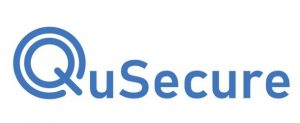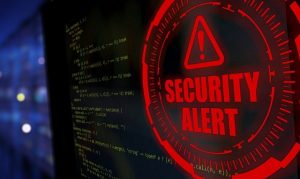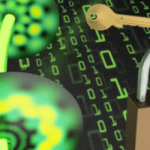Quantum News Briefs July 7: World Economic Forum weights in on NIST announcement, QuSecure’s platform supports NIST’s post-quantum cryptography algorithms, Infineon & Oxford Ionics collaborate on trapped ion quantum processors & MORE

Quantum News Briefs opens today with the World Economic Forum’s statement discussing the importance of the NIST announcement of the quantum-safe cryptography algorithms, followed by QuSecure’s announcement that its platform supports all of NIST’s post-quantum cryptography algorithms. Next, the Briefs share the news about Infineon and Oxford Ionics joining forces to develop leading trapped ion quantum processors, and MORE.
WEC: How Quantum-Safe cryptography Will Ensure a Secure Computing Future
 The World Economic Forum (WEC) has issued a statement about the US National Institute of Standards and Technology (NIST) announcement of the winners of a six-year-long competition to create quantum-safe algorithms.
The World Economic Forum (WEC) has issued a statement about the US National Institute of Standards and Technology (NIST) announcement of the winners of a six-year-long competition to create quantum-safe algorithms.
The WEC explains why this is important in its statement: Medical, financial, and health records — for sensitive data protection, encryption and authentication is crucial. Today it’s pretty robust, but future quantum computers could change that. It’s been said time and time again that this emerging, powerful technology based on nature’s quantum intricacies could break cryptography, wreaking havoc in our digital lives. Still, this is unlikely to happen.
The WEC stresses, “It is crucial for organisations worldwide to understand the risks of quantum computers and to realise that solutions thanks to NIST’s selection of quantum-safe standards are becoming available. They should start preparing today.”
Click here to read the entire World Economic Forum document
*****
QuSecure’s Platform Supports NIST’s Post-Quantum Cryptography Algorithms

QuSecure, Inc., a leader in post-quantum cybersecurity (PQC), has announced its QuProtect PQC solution supports all of the post-quantum cryptography algorithms selected by the National Institute of Standards and Technology (NIST) for standardization in PQC solutions. QuProtect is the industry’s first end-to-end PQC software-based solution uniquely designed to protect encrypted communications and data with quantum-resilience using quantum secure channels. Its proven, adaptable orchestrated PQC solution with continuous availability offers government and private businesses a secure, comprehensive, and simple solution for quantum security for today and tomorrow’s threats.
“Having participated in post-quantum cybersecurity since 2018, we have seen NIST shorten the timeline for their decision on quantum resilient cryptography from 2024 to now July 5th,” said Skip Sanzeri, Co-Founder and COO of QuSecure. “Pushing up the timeline is a direct response to the growing urgency of the quantum threat, and the need to standardize resources to get in front of it. We overwhelmingly applaud this move by NIST as it encourages U.S. government entities and commercial enterprises to move forward more quickly towards post-quantum cryptography since data is getting harvested today for future decryption. Since much of our data needs to remain secure for 25, 50 or even 75 years, it is highly recommended that large organizations begin the post-quantum cybersecurity upgrade process as soon as possible, especially now since standards have been established.
*****
Infineon and Oxford Ionics join forces to develop leading Trapped Ion Quantum Processors
 Infineon Technologies AG and Oxford Ionics have announced a collaboration to build high-performance and fully integrated quantum processing units (QPUs). The combination of Oxford Ionics’ unique electronic qubit control (EQC) technology with Infineon’s world-leading engineering and manufacturing capabilities, as well as expertise in quantum technology, will lay the foundations for the industrial production of QPUs offering hundreds of qubits within the next five years.The goal is to move quantum computing technology out of the research lab into real industrial solutions.
Infineon Technologies AG and Oxford Ionics have announced a collaboration to build high-performance and fully integrated quantum processing units (QPUs). The combination of Oxford Ionics’ unique electronic qubit control (EQC) technology with Infineon’s world-leading engineering and manufacturing capabilities, as well as expertise in quantum technology, will lay the foundations for the industrial production of QPUs offering hundreds of qubits within the next five years.The goal is to move quantum computing technology out of the research lab into real industrial solutions.
The first Oxford Ionics devices will be cloud accessible by the end of 2022, offering commercial players access to these cutting-edge Quantum Computers. Fully integrated devices with high enough performance to scale to hundreds of qubits are planned to be available in less than two years. The ultimate goal of Infineon and Oxford Ionics is to offer, within five years, individual, fully integrated QPUs offering hundreds of qubits networked together into a quantum supercomputing cluster using Oxford Ionics’s quantum networking technology.
*****
The Biggest Cybersecurity Threats of Tomorrow
 Quantum computing is increasingly gaining traction, with big tech companies setting out plans to deliver high-powered quantum computing hardware in the next few years. The power of quantum computing could provide benefits for society in several ways, particularly when it comes to science, research, analyising algorithms, as well as improving artificial intelligence and machine learning.
Quantum computing is increasingly gaining traction, with big tech companies setting out plans to deliver high-powered quantum computing hardware in the next few years. The power of quantum computing could provide benefits for society in several ways, particularly when it comes to science, research, analyising algorithms, as well as improving artificial intelligence and machine learning.
But there’s the risk that the rise of quantum computing poses a threat to traditional cybersecurity and encryption as we know it because quantum computers could break public-key cryptography — it’s something the White House has warned could be a threat to businesses and national security.
Technology companies are working on quantum-proof cybersecurity — and it’s likely to be something that many governments, businesses and other organisations will need to think about in the coming years.
These are the biggest cybersecurity threats of tomorrow, according to ZDNet’s senior reporter Danny Palmer.
–Software supply chain attacks
–The Internet of Things is making us more vulnerable
–Deepfakes powering business email compromise attacks
–Destructive malware attacks
=–The skills crisis
Read Palmer’s article by clicking here.
****
Sandra K. Helsel, Ph.D. has been researching and reporting on frontier technologies since 1990. She has her Ph.D. from the University of Arizona.
























